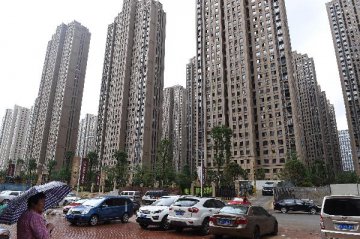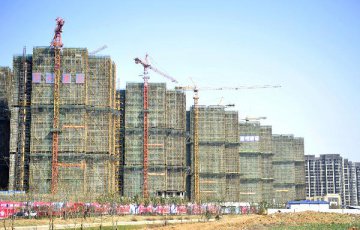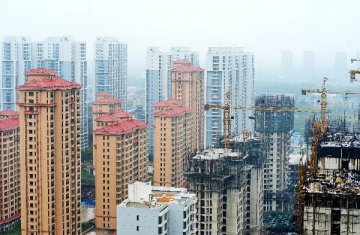
There’s significant polarization in housing prices across the country this year. Gap in housing prices of tier-1 cities narrows, while that of tier-2 and tier-3 cities expands.
Beijing government will unswervingly strengthen and improve regulation in real estate market and ensure no housing price hike in 2017, according to the White Paper for Beijing Housing and Urban-rural Development (2017) which was recently released by Beijing Municipal Commission of Housing and Urban-rural Development. It is learnt that although Shanghai, Shenzhen, Guangzhou and other places didn’t disclose to what extent they will control the housing prices, they all targeted to stabilize housing market and prevent remarkable ups and downs in housing prices according to their policies.
Based on the White Paper, 46,200 new commercialized residential houses with an area of 6.591 million square meters were available for sales in Beijing in 2016, which declined by 40.8 percent and 32.4 percent year on year respectively. Housing supply hit the new low over past five years. 326,000 commercial residential houses in Beijing were traded in 2016, up by 15.6 percent from a year earlier.
In addition to short supply, the strong demand for house purchase in Beijing last year was contributed by outlook for rise in housing prices due to the increasing land prices, said Guo Yi, marketing director of real estate consultancy Yahao, in an interview with reporter from Securities Daily yesterday.
Xia Lei, chief property analyst at Founder Securities Co., said to the reporter yesterday that the central government aimed to curb housing prices in hot cities from surging rapidly in 2017, but this target has been basically achieved seen from current situation. The Beijing government recently put forward the target of ensuring no housing price hike on a monthly basis in 2017, and this target also fits for other tier-1 cities.
At present, housing market in tier-1 cities has cooled down a lot. According to the report on real estate transaction in major Chinese cities in the first half of 2017, which was released by China Index Academy, house areas traded in 17 of the 30 cities under monitoring declined year on year in the first half of this year. Tier-1 cities such as Beijing, Shanghai, Guangzhou and Shenzhen saw greater decline in house sales in terms of area. It dropped by over 50 percent in Shenzhen, over 30 percent in Beijing and Shanghai, and 20 percent in Guangzhou from a year earlier.
Noticeably, there’s significant polarization in housing prices across the country this year. Gap in housing prices of tier-1 cities narrows, while that of tier-2 and tier-3 cities expands.
Zhang Dawei, chief analyst from Centaline Property, remarked on July 12 that the polarization of housing prices only lied in the degree of increase and decrease in the past. But it was totally different in various cities this year. Housing prices in tier-1 cities began to stop rising or even to drop, and the polarization was mainly showed in tier-2, tier-3 and tier-4 cities.
Zhang added that growth in housing prices of tier-2 cities like Hefei, Xiamen, Nanjing and Suzhou slowed slightly. Zhengzhou also introduced regulation policy to maintaine housing price relatively stable. Housing prices in most tier-3 cities, particularly those surrounding tier-1 and tier-2 cities, are still climbing.
“There’s no drastic change in real estate market in tier-4 cities in recent years,” said Zhang.
Zhao Xijun, a finance professor at Renmin University of China, told the reporter that as situation in many regions of China is different, polarization in housing market of tier-2, tier-3, and tier-4 cities is prominent. This makes the market situation complex and makes it difficult to adopt the same policies for all cities. Therefore, one policy is applied to one city now.
The White Paper proposed to further consolidate and deepen regulation effect, stick to the positioning that “houses are used for living but not for speculation”, focus on setting up housing system including house purchase and rent, continue to unswervingly reinforce and improve real estate market regulation, regulate market order, move quicker in establishing long-term mechanism according with China’s situation, market situation and market law, and promote steady and healthy development of real estate market.
Translated by Vanessa Chen
























Latest comments